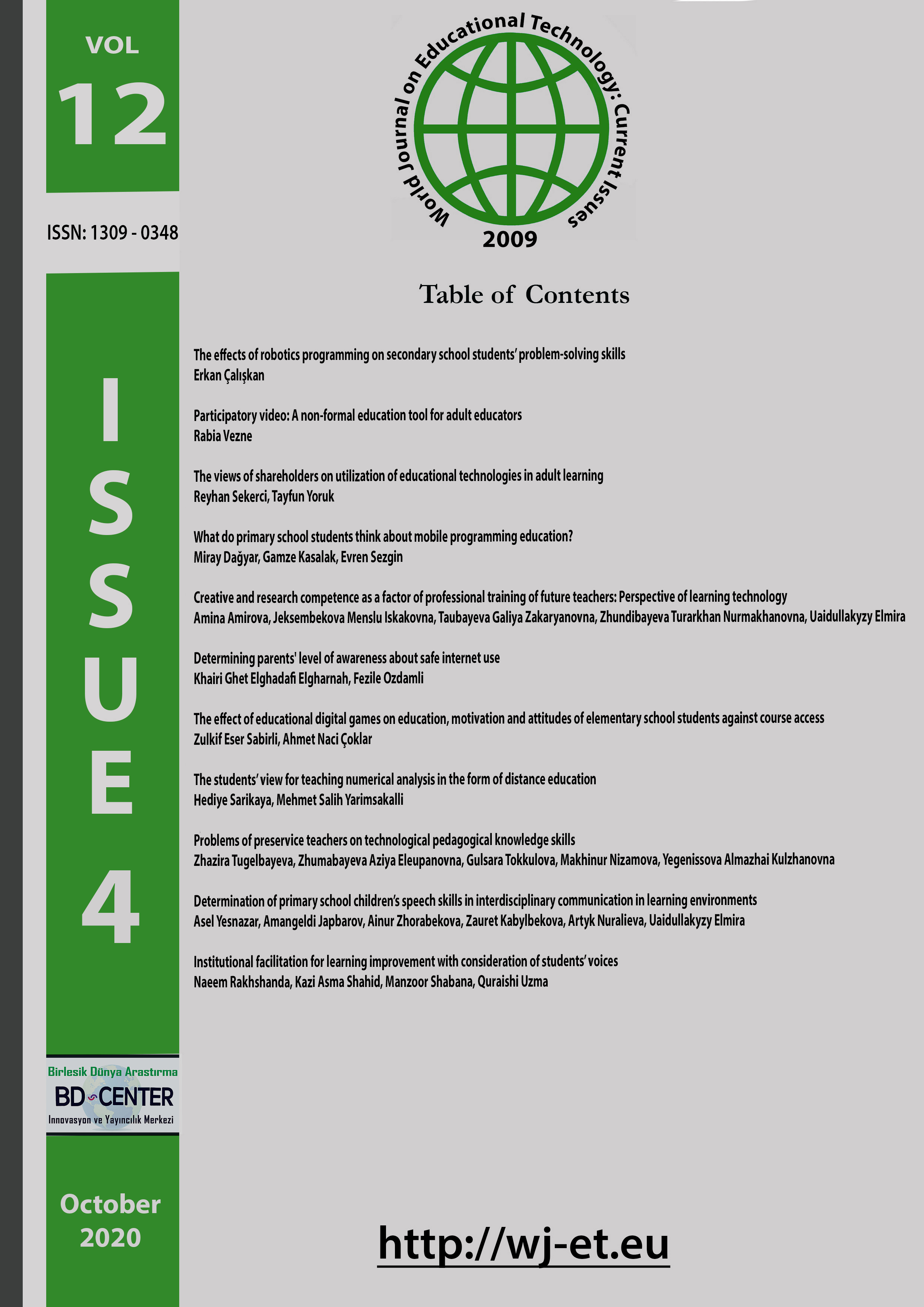Participatory video: A non-formal education tool for adult educators
Main Article Content
Abstract
Adult education is a wide field which is dealing with the educational needs of adult learners from a diversity of groups, including people with special needs, women, refugees and asylum seekers. The aim of this study is to understand and analyse the opinions of the educators regarding their understanding of the participatory video method, the usage, the benefits and the contribution of the participatory video method to their professional development, and finally their thoughts on the participatory video method. The qualitative study and the case study with a holistic single case were used. Face-to-face interviews using semi-structured interview forms were used to collect data. The results show that the understanding of the participatory video method by the educators was the inclusion of different groups of people, collaborating and learning new skills; the benefits gained by educators were learning new things and skills; the participatory video method has contributed to their professional development and the majority of the educators are eager to implement it in their workshops and practices; and the educators perceived the participatory video method as an inclusive, connecting, tutorial and a generally positive phenomenon. These findings will inspire adult educators to use this method in their training organised for disadvantaged groups.
Keywords Adult education; participatory video method; people with special needs
Downloads
Article Details
World Journal on Educational Technology: Current Issues is an Open Access Journal. The copyright holder is the author/s. Licensee Birlesik Dunya Yenilik Arastirma ve Yayincilik Merkezi, North Nicosia, Cyprus. All articles can be downloaded free of charge. Articles published in the Journal are Open-Access articles distributed under CC-BY license [Attribution 4.0 International (CC BY 4.0)].
Birlesik Dunya Yenilik Arastirma ve Yayincilik Merkezi (BD-Center)is a gold open-access publisher. At the point of publication, all articles from our portfolio of journals are immediately and permanently accessible online free of charge. BD-Center articles are published under the CC-BY license [Attribution 4.0 International (CC BY 4.0)], which permits unrestricted use, distribution, and reproduction in any medium, provided the original authors and the source are credited.
